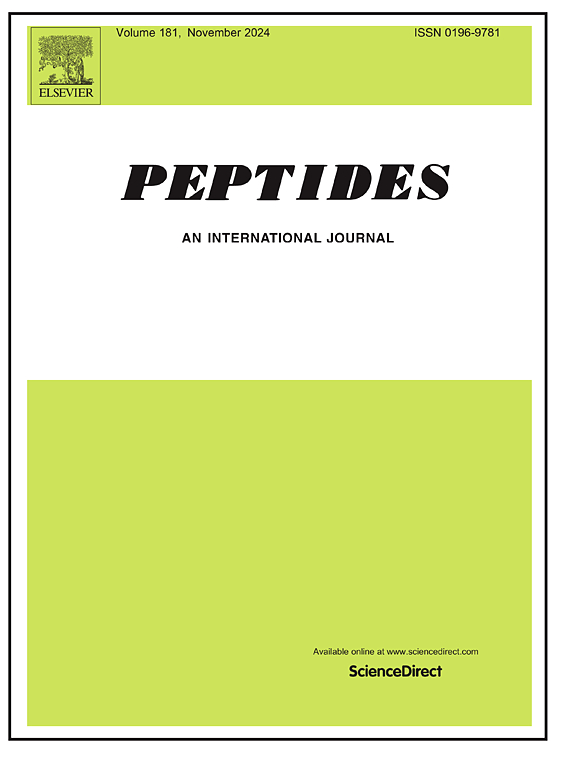FGF4通过抑制铁下垂和焦下垂减轻肾缺血再灌注(I/R)损伤
IF 2.9
4区 医学
Q3 BIOCHEMISTRY & MOLECULAR BIOLOGY
引用次数: 0
摘要
肾缺血再灌注损伤可导致严重的肾功能损害,表现为血清肌酐显著升高,肾小管梗阻,甚至坏死,可导致急性肾功能衰竭。这种损伤还可引发全身炎症反应综合征,甚至导致多器官功能障碍。它对患者的生命和健康构成严重威胁,因此迫切需要寻找潜在的药物进行治疗。在我们目前的工作中,我们评估了FGFs对缺血再灌注引起的肾损伤的影响。我们首先建立了肾细胞缺血再灌注损伤模型。通过一系列生化技术进一步评价了FGFs的生物学功能。实验数据表明,FGFs能有效改善肾细胞缺血再灌注损伤。FGFs可减轻肾细胞缺血再灌注引起的铁死亡和焦亡。进一步的研究表明,FGF4还能减轻缺血再灌注引起的炎症和氧化应激损伤。机制研究也表明,FGFs通过激活ampk介导的信号通路,有效减轻缺血再灌注诱导的肾损伤。此外,在体内,我们还发现FGF4可以有效减轻肾脏缺血再灌注损伤。这一发现不仅显示了FGF4治疗缺血性疾病的潜在前景,也为肾缺血再灌注损伤的治疗提供了新的药理靶点。本文章由计算机程序翻译,如有差异,请以英文原文为准。
FGF4 alleviates renal injury caused by ischemia-reperfusion(I/R) by inhibiting ferroptosis and pyroptosis
Renal ischemia-reperfusion injury can lead to severe renal function impairment, manifested by a significant increase in serum creatinine, renal tubular obstruction, and even necrosis, which can lead to acute renal failure. This injury can also trigger systemic inflammatory response syndrome and even lead to multiple organ dysfunction. It poses a serious threat to the life and health of patients, so it is urgent to find potential drugs for treatment. In our current work, we evaluated the effects of FGFs on kidney injury caused by ischemia-reperfusion. We first established a model of kidney cell injury caused by ischemia-reperfusion. The biological functions of FGFs were further evaluated through a series of biochemical techniques. The experimental data showed that, FGFs can effectively improve the damage of kidney cells caused by ischemia-reperfusion. FGFs can alleviate iron death and pyroptosis of kidney cells caused by ischemia-reperfusion. Further work showed that FGF4 also alleviated inflammation and oxidative stress damage caused by ischemia-reperfusion. Mechanism research also showed that FGFs effectively alleviated ischemia-reperfusion-induced kidney injury by activating AMPK-mediated signaling pathways. Furthermore, in vivo, we also found that FGF4 can effectively alleviate the kidney ischemia-reperfusion injury. This finding not only indicates the potential therapeutic prospects of FGF4 for ischemic diseases, but also provides a new pharmacological target for the treatment of renal ischemia-reperfusion injury.
求助全文
通过发布文献求助,成功后即可免费获取论文全文。
去求助
来源期刊

Peptides
医学-生化与分子生物学
CiteScore
6.40
自引率
6.70%
发文量
130
审稿时长
28 days
期刊介绍:
Peptides is an international journal presenting original contributions on the biochemistry, physiology and pharmacology of biological active peptides, as well as their functions that relate to gastroenterology, endocrinology, and behavioral effects.
Peptides emphasizes all aspects of high profile peptide research in mammals and non-mammalian vertebrates. Special consideration can be given to plants and invertebrates. Submission of articles with clinical relevance is particularly encouraged.
 求助内容:
求助内容: 应助结果提醒方式:
应助结果提醒方式:


